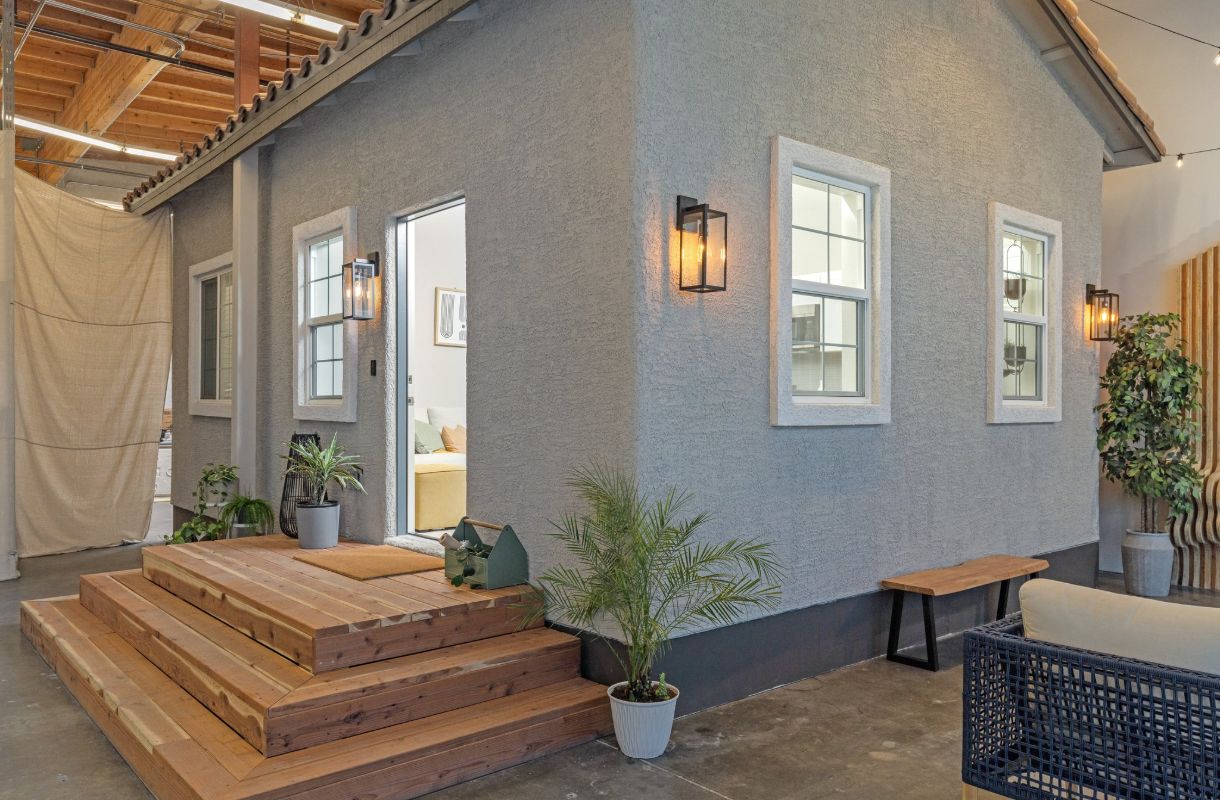Choosing between detached and attached casitas involves considering several factors important for homeowners in Las Vegas. Whether it’s about creating additional space for aging parents, establishing a private home office, or investing in an accessory dwelling unit (ADU) for rental income, understanding the pros and cons is important.
The Versatility Of Accessory Dwelling Units
Accessory dwelling units, often called casitas, are self-contained living spaces that offer flexible solutions for housing family members, working from home, or generating rental income. An ADU can significantly expand the square footage and usability of your home. Being informed about local regulations and design options can help ensure a successful and functional addition to your property.
Detached Casita Benefits
Detached casitas—sometimes referred to as backyard casitas—offer enhanced privacy and flexibility. Separated from the main house, they provide a quiet and independent space ideal for guest accommodations, in-law quarters, or even long-term rentals. Because they are standalone structures, they allow for greater architectural freedom and noise isolation, making them a desirable option for those who value personal space.
Pros Of Detached Casitas
- Enhanced Privacy For Occupants
- Increased Flexibility & Potential For Diverse Applications
- Less Noise Transfer Between Units
- Opportunity to Design & Build With Greater Architectural Freedom
Privacy Benefits & Seclusion
One of the biggest advantages of a detached casita is the seclusion it provides. Unlike attached units that share walls with the main house, detached casitas function like mini homes, ideal for visitors or tenants seeking independence. This separation enhances comfort for both parties, making it perfect for multi-generational living arrangements or short-term stays.
Flexible Use & Multifunctionality
Detached casitas can be transformed into whatever the homeowner needs—home offices, fitness studios, creative workshops, or private retreats. Their versatility means you can adapt the space as your lifestyle changes, without interfering with the layout or function of your primary residence.
Challenges Of Building Detached Casitas
While appealing, detached casitas often come with higher upfront costs and may require additional permitting or site planning. These considerations include utility connections, zoning limitations, and increased use of outdoor space, all of which should be carefully evaluated during the planning stage.
Cons Of Detached Casitas
- Higher Construction & Utility Costs
- Possible Extensive Permitting & Compliance Requirements
- Increased Footprint On The Property, Affecting Landscaping
Benefits Of Attached Casitas
Attached casitas offer a cost-effective solution for expanding living space. Built directly into or adjoining the main house, they make efficient use of shared infrastructure, reducing construction costs and simplifying utilities. This design is especially convenient for homeowners who need extra space without wanting to sacrifice yard space or undertake major structural work.
Pros Of Attached Casitas
- Lower Construction Costs By Using The Existing Structure
- Improved Energy Efficiency With Shared Utilities
- Potentially Fewer Zoning & Compliance Challenges
- Ease Of Access For Aging-In-Place Considerations
Streamlined Cost Management
Since attached casitas utilize the primary home’s existing walls, systems, and utilities, construction costs can be significantly lower. Heating, cooling, and plumbing can be more efficiently managed, leading to savings over time and a reduced environmental footprint.
Accessibility & Unified Design
Attached casitas blend naturally into the home’s original design, maintaining a cohesive look and feel. They’re ideal for aging-in-place scenarios or family caregiving, as access is easy and often step-free. Repurposing garages, basements, or extensions can further reduce costs and construction timelines.
Potential Drawbacks Of Attached Casitas
Though efficient, attached casitas do come with trade-offs—chiefly, a lack of privacy and limitations in design. They may not be suitable for long-term guest stays or rentals where separation is a priority.
Cons Of Attached Casitas
- Reduced Privacy Due To Proximity To The Main House
- Limited Architectural Customization
- Greater Potential For Noise Transfer Between Units
Deciding Between Detached & Attached ADUs
Choosing between a detached or attached casita depends largely on your goals, lifestyle, and budget. If privacy and multi-use flexibility are important, a detached unit may be worth the investment. If cost savings and convenience are priorities, an attached option could be the best fit. Assessing how the unit will be used and for how long will help guide your decision. A professional casita builder can help you make this decision during assessment as well, utilizing their many years of experience to help you.
Zoning & Local Regulations In Las Vegas
Las Vegas has specific zoning laws and building codes that can impact casita construction. Whether attached or detached, homeowners must verify if ADUs are allowed in their zoning district, check for square footage limits, and obtain the necessary permits. Working with a professional familiar with local regulations ensures compliance and avoids costly delays.
Creating Your Perfect Accessory Dwelling Unit
Ultimately, whether you choose a detached or attached casita depends on your property’s layout, your budget, and your lifestyle needs. For Las Vegas residents, Picasa Homes offers unmatched expertise in designing and building custom casitas and ADUs. Visit our Casita Showroom and schedule a personalized consultation. Our all-inclusive process—from design through construction—ensures a seamless, custom-tailored solution that enhances your home and adds lasting value.
